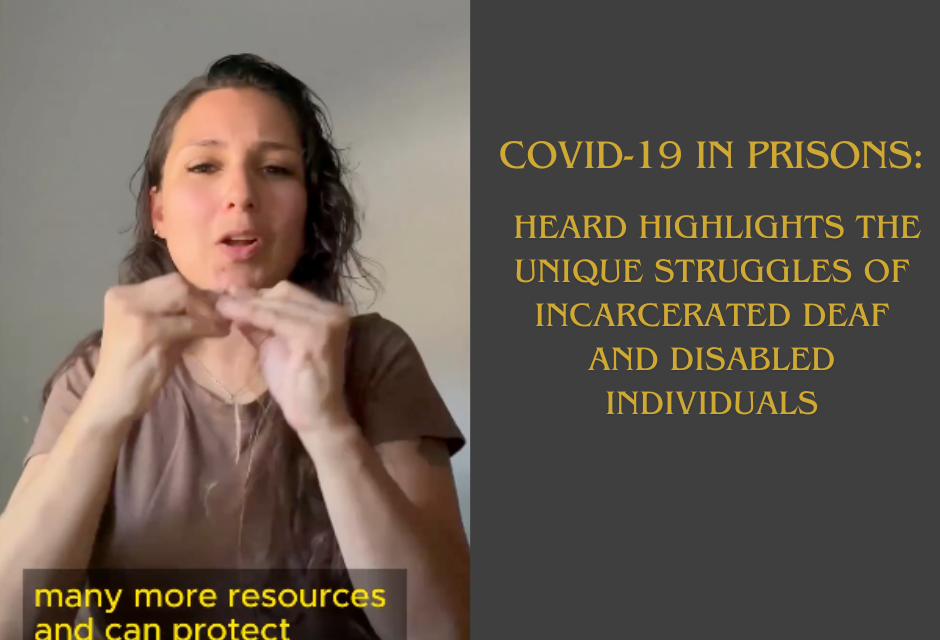The COVID-19 pandemic has laid bare numerous inequalities across various segments of society, and one of the most striking is the disparity faced by incarcerated individuals. Among this vulnerable group, those who are deaf or disabled face even more significant challenges. Understanding and addressing these challenges is crucial for fostering a more equitable and compassionate response to the pandemic.
For incarcerated people, protecting themselves from COVID-19 is a monumental task. Unlike those of us in the free world, prisoners have little to no control over their exposure to the virus. They are unable to enforce social distancing, have limited access to high-quality masks, and cannot choose the type of vaccines they receive. The situation is further exacerbated by the inadequate ventilation systems in many prisons, which increases the risk of airborne transmission.
The stigma surrounding COVID-19 within prisons is another significant issue. According to HEARD (Helping Educate to Advance the Rights of the Deaf), incarcerated individuals often face targeting and discrimination for wearing masks or testing positive for COVID-19. This hostile environment discourages preventive measures and contributes to the spread of the virus. Moreover, those who test positive can be subjected to up to two weeks of isolation, which can have severe long-term health impacts both physically and mentally.
The Deaf and Disabled Experience
For deaf and disabled incarcerated individuals, the situation is even more dire. Wearing masks can conflict with access needs, such as the ability to lip-read or communicate effectively. However, the disabled community has shown incredible resilience and creativity in overcoming these barriers. While masking may pose challenges, deaf and disabled individuals continue to find ways to communicate and support each other.
Despite these efforts, the risks remain high. Limited access to quality healthcare and the compounded effects of neglect and discrimination in prisons make deaf and disabled individuals more vulnerable to severe outcomes from COVID-19.
The pandemic has underscored the importance of solidarity and mutual support. While those of us outside prison walls have access to better resources and fewer risks, we must recognize the struggles faced by incarcerated individuals. Practicing COVID solidarity involves being patient and empathetic, especially with those who have different access needs.
HEARD emphasizes, “We recognize that for our deaf/disabled communities, wearing masks may pose a conflict of access needs for us. At the same time, we know disabled people are beautifully creative and we are skilled communicators. We can be patient and empathetic with each other while masking up. Our communities are still experiencing harmful impacts from COVID and the experiences of people in prisons and jails are even worse. Join us in committing to practicing COVID solidarity and supporting each other’s safety!”
We must advocate for better conditions and protections for those in prisons and jails. This includes pushing for access to high-quality masks, better healthcare, and improved ventilation systems. It also means fighting against the stigma and discrimination that incarcerated individuals face for taking preventive measures against COVID-19.
The experiences of incarcerated individuals, particularly those who are deaf or disabled, highlight the need for a more compassionate and inclusive approach to public health. By recognizing and addressing these unique challenges, we can work towards a society that values and protects all its members, especially the most vulnerable. Join us in committing to COVID solidarity and supporting each other’s safety and well-being during these challenging times.


